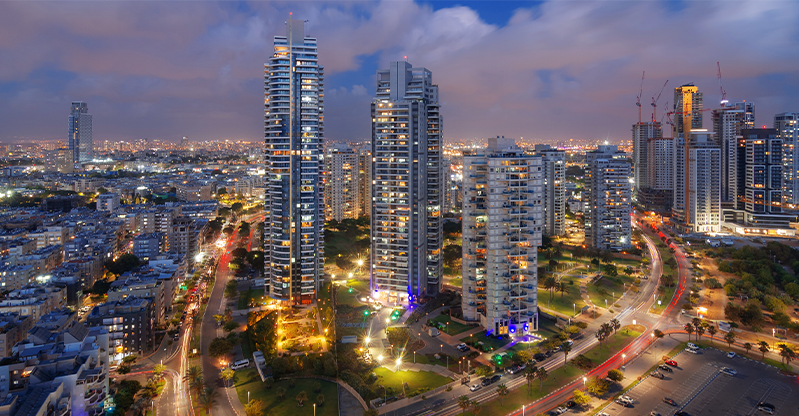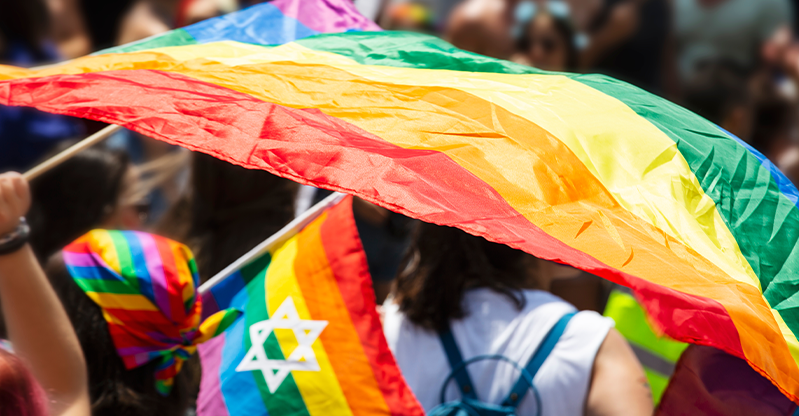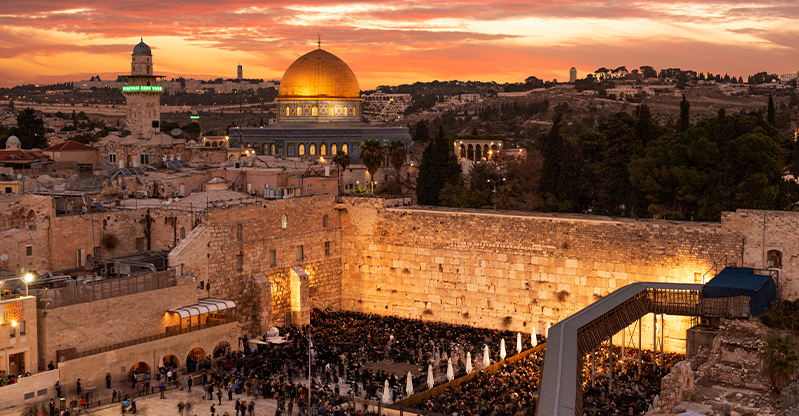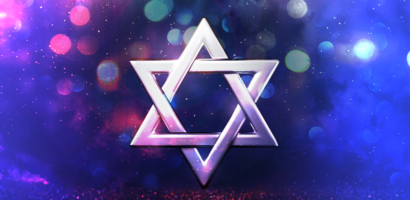Israel, the Holy Land, is home to a melting pot of cultures. From one end of the country to the other, there are many diverse and interesting peoples. Jews, Muslims, and Christians alike live, to some extent, next to each other. But certain universals remain true for all Israelis. And some not. Israel as we know it has its stereotypes. Some are misshapen; others have a reflection of reality to them. In this blog, we’ll be looking at six things that make up the personality of the people of Israel.
Israelis are like the sabra fruit
More formally known as Opuntia and referred to as prickly pear or a pear cactus, the sabra fruit is thorny on the outside but delicious and sweet on the inside. This reflects how Israelis and those who’ve befriended them see themselves. Hard, tough exteriors, but inside they’re kind and genuine people. (Incidentally, sabra is also a term for a Jew born in Israel, no matter where their parents came from.)
Perhaps it’s because growing up in a country that has historically either been at war with its neighbors or an uneasy peace with them tends to make you tougher. After all, Israel’s establishment, not so long ago, in 1948, was born in blood and fire.
Numerous armies attacked the new state with the intention of destroying it. Since then, there have been multiple wars. Having that existential threat has made tough people of the Israelis, even though there has generally been peace in recent years. At the same time, Israelis have learned, because of this, that life is precious, time is short, and anything can happen at any time, so enjoy every moment.

Israelis live life to the fullest
Because they know life to be so precious, Israelis waste no time getting the most out of it. This means enjoying the numerous cafés, restaurants, and nightclubs on offer in the various cities. Cities, by the way, with their own unique personalities.
An Israeli friend, a sabra herself, told me once how there was a shooting around the corner in a busy area known for its eateries. Sadly, six people lost their lives. Half an hour later, after the ambulances and police vehicles had left, people went back to enjoying their meals. This is not callousness. This is a culture of indomitability. Of an iron will to get on with life and enjoying it for however long we have.
Getting on with life is what makes Israelis who they are. No matter what happens. And it isn’t that difficult either. Of the many locales in Israel, it is still a Mediterranean country, with some parts of it very much part of the lifestyle of the typical Medi city.

Israelis are cosmopolitan and open-minded
Like with many countries, there’s a wide variety of views and sub-cultures. In Tel Aviv, for example, the inhabitants there are very open-minded. For one thing, they have one of the largest gay communities in the world. It is so significant that there’s a pride week once a year, along with a plethora of bars dedicated to gay people. In fact, the nightlife, in general, is busy, with some parties only starting at 2 am. Tel Aviv is very much an all-nighter’s dream city.
Along with pristine beaches with white sand and picturesque views of the Mediterranean, the people here are avid at living life to the full, combined with a great sense of tolerance. The inner fruit side of the sabra also comes out of its prickly shell in many of the clubs. Israelis aren’t afraid to join your table and enter the conversation as if they were there from the very beginning.
At the same time, they’re very cosmopolitan regarding the latest trends and fads. They quickly adopt these trends into their own culture, something easily witnessed in their teens and young adults. Israelis are a worldly people, too, as part of this cosmopolitan culture, and many of them enjoy the tourist experience in other regions of the world.
However, some parts of Israel are, conversely, the opposite; they tend to be very closed communities, as we shall see.

In Jerusalem, the culture of Godliness
In contrast to cities like Tel Aviv, Jerusalem is a far more solemn place. Make no mistake; there is still plenty of fun to be had. It has its share of nightclubs, and as a de facto international city, you’re sure to meet many interesting people from all walks of life, from all parts of the world. Jerusalem is especially popular with Christian pilgrims, seeing as the key figure of their religion, Jesus Christ, experienced his final moments there in Golgotha.
It also is of great significance to Muslims, with East Jerusalem essentially being “the Muslim Quarter”, as it has been for over a thousand years. In the Old City, you’ll find much traditional Middle Eastern culture, like the Arab markets (known as shouks), where you can try your hand at negotiating prices down. The Arabs here can be very friendly and eager for a sale.
You’ll also find the Al-Aqsa Mosque, or Dome of the Rock, which is the third holiest place in Islam. It has been a site of contention and tension before. And close by is the Kotel, known in English as the Western or Wailing Wall, where religious Jews are found every day, praying, as it is the last earthly vestige of the once-mighty Jewish Temple, destroyed by the Romans circa 70 CE. It represents the holiest place on Earth for the Jewish people.
Subscribe to our newsletter
Learn Hebrew slang, take a virtual tour across Israel, discover the best local food and so much more
There’s Mei Shearim, the most religious neighborhood in all of Israel. The Jews here are ultra-religious even by typical frum (observant Jews) standards. It is dead quiet on Saturdays, except perhaps for young religious children who hurl stones in Biblical fashion at passing cars. Driving is prohibited on the Sabbath, so they take particular offense to it being done anywhere near their neighborhood.
In fact, most of Jerusalem proper is quiet on Saturdays. And most peaceful of all on Yom Kippur, the Day of Atonement, Judaism’s most sacred day. Just by being in the city on those days, you realize that Jerusalem is Israel’s most profoundly holy city.
But come Saturday night, when the Sabbath has officially ended when the first three stars in the night sky are visible, Jerusalem’s streets are bustling with life and activity. Restaurants are full of families enjoying meals together. Friends walk the roads, especially the main ones like Ben Gurion. Couples are visiting the latest movies while holding hands. There is an electrifying energy, and it’s much in keeping with the Israeli spirit of making the most of life.

Family is the most important part of Israeli life. So is food.
There’s a joke that the one thing all Jewish holidays have in common is food (Yom Kippur, a fast day, is not really a holiday). And food is best enjoyed with family. But every occasion is cause for celebration. Israelis tend to be tightly knitted with their families. They are often in each other’s company.
The Jews that make up Israel’s population come from different parts of the world. Morocco, Iraq, Lithuania, Germany, Russia, Ethiopia, and America, amongst other diverse locations. And as a result, they have come with their own cultural idiosyncrasies. But one thing they all have in common is community spirit. And community begins at home.
That’s because to survive in the diaspora without being assimilated and thus ceasing to exist in terms of Jewish identity, staying within the community in foreign lands was essential. This is why the Jewish people are regarded as one of the longest stayed people in history. They have culturally and ethnically outlived some of the greatest civilizations of all time. The Assyrians, the Babylonians, the Ancient Greeks, the Ancient Romans, etc.
And it all starts with family. This fact remains today, where wherever you are in Israel, you’ll find the basic tenants of being a close family: laughing together and doing activities together. As for food, what better way to bind a family to one another than delicious traditional meals made from the heart?

Israelis are blunt as a hammer.
The expression, “there’s no time to waste,” couldn’t be truer in Israel. Time is precious, as we mentioned, and Israelis are a busy bunch. This can be seen in their notoriously lousy driving habits. Which involves speeding and taking chances on the road. They have places to be and things to do. And the Israeli work ethic is rightly praised for being uncompromising.
But in terms of personal interactions, Israelis have no time for the sort of etiquette niceties usually found in the rest of the world. This is conveyed in their language. Instead of saying, “No, thank you,” they will simply say “No”. This can be initially off-putting to visitors unfamiliar with Israeli culture. However, the fact of the matter is that some intonations indicate a degree of politeness. “No” isn’t said rudely if you know Hebrew intimately. It has subtleties, and the tone in which a word is said is where you’ll find the etiquette.
Still, general etiquette (or lack thereof) can be off-putting — especially when standing in a queue, and you’re about to make your approach to the ATM… when suddenly an Israeli, out of nowhere, has pulled in front of you and already inserted his bank card before you can blink an eye. You’ve got to be fast about these things, or else you’re marked as a “sucker”. The same applies when letting a car through an offramp into traffic. Before you know it, five have passed through, and the sixth is edging in close. Now you have a duel on your hands.
But, as mentioned in our first section, Israelis are prickly on the outside but kind and sweet on the inside. True sabra. And they will be the first to assist you in an emergency. They also make the truest of friends and will always have your back. Even as they tell you forthrightly what they’re thinking. And some do have the kindness to dip their honesty in honey.
Acquaint yourself with Israelis by literally speaking their language. Find out more about our Hebrew lessons courses here.













 Available on WhatsApp
Available on WhatsApp
Join the conversation (No comments yet)